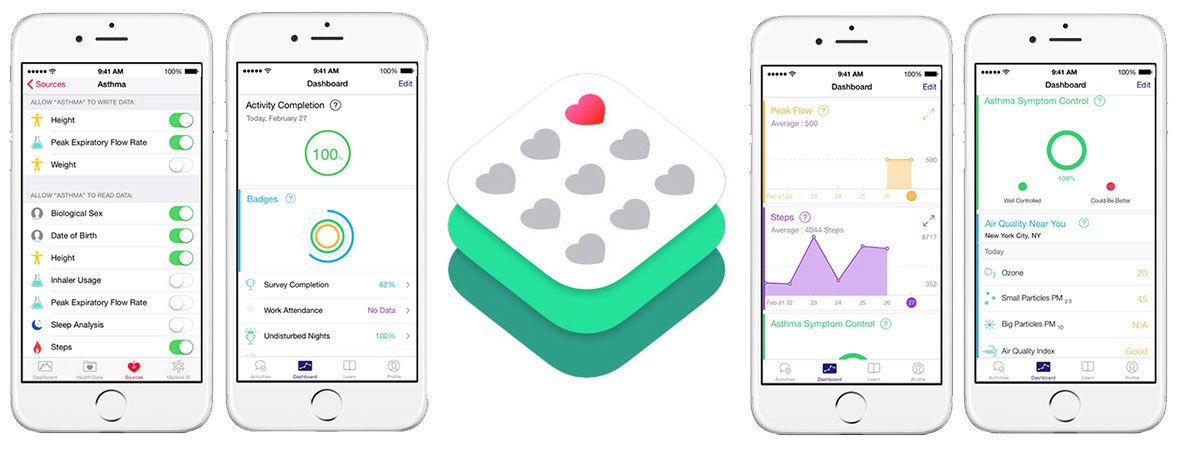
Apple announce ResearchKit
It has been an action packed few months for the Apple innovation team with things about to get even bigger. Late 2014 saw the launch of the new iPhone 6 range, early 2015 welcomed the new Macbook and, of course, the Apple Watch but what else is on the cards in 2015?
With all these exciting product revelations, Apple’s newest announcement is possibly its biggest and most unusual project to date… but to be honest I was expecting it, just not this soon.
Apple has already dominated the tech market, revolutionising consumer hardware, computer software, consumer electronics and digital distribution. They have shaped and revolutionised the way industries operate, leaving behind countless products and services in the process. They have created cultural trends and impacted upon the way we go about our daily lives… what more is there to do… well, investigate your DNA.
Following the successful launch of its medical research API, ResearchKit, Apple now has a tool for users to… well… import and selectively share genetic data.
But it’s all in good taste, for now. Apple has said that the collection of DNA for genetic research is to aid researchers wanting to learn more about DNA, specifically for those who may not have the resources to do so.
So How Will It Work?
Apple has two studies planned (one with the University of California, San Francisco, and the other with Mount Sinai Hospital in New York) that would allow the partners to collect or test DNA via an iPhone app.
"The data would be maintained by scientists in a computing cloud, but certain findings could appear directly on consumers’ iPhones as well," the report said. "Eventually, it’s even possible consumers might swipe to share 'my genes' as easily as they do their location."
Apple introduced the ResearchKit to the world in March. Its initial launch focused around five app partners, designed to collect data on Parkinson’s Disease and Asthma. In the past few months though, it was opened up as a platform for developers to explore varying conditions and diseases. The idea behind it was to collect data from patients via the iPhone app (after they have been approved for involvement), stored in a secure portal. Based on your medical condition, you would then be able to participate in the studies and provide your data to varying clinical trials and surveys, to then be evaluated and analysed by the medical team conducting the study. Overall, it is expected to help generate larger sample pools, with accurate data that research teams can access worldwide.
Although Apple has been less than talkative about the future of the project, especially deflecting questions about whether they will be charging researchers for the cost of the data lists and more so, what the future will hold for this DNA data moving forward? All we know is Apple have just scratched the surface with ResearchKit and their investigation and growth into the health landscape will only continue to grow with time.
